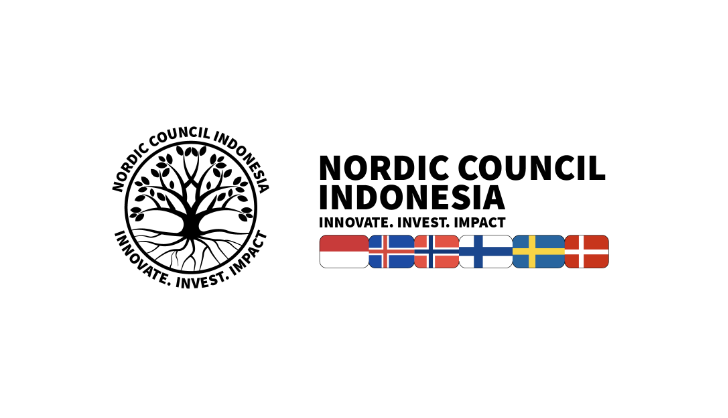
Bali is a popular destination for entrepreneurs and business owners due to its breathtaking scenery, rich cultural heritage, and thriving hospitality industry. Located in the heart of Southeast Asia, Bali is known for its stunning beaches, lush forests, and vibrant arts and crafts scene. This, combined with its warm and welcoming people, makes Bali a desirable destination for both tourists and expatriates.
The island’s tourism industry is one of the largest contributors to its economy, making it an attractive location for businesses in the hospitality sector. From hotels and resorts, to restaurants, cafes, and bars, there is a wide range of businesses that cater to the millions of tourists who visit the island each year. Additionally, Bali’s thriving expat community and international lifestyle make it an ideal location for businesses focused on health, wellness, and personal development.
Despite the many opportunities that Bali offers, starting a business in the island can be challenging. The Indonesian government has strict regulations and procedures for foreign-owned businesses, which can make the process of starting a business more complex and time-consuming. However, with careful research and planning, entrepreneurs can overcome these challenges and establish successful businesses in this idyllic tropical paradise.
Benefits of starting a business in Bali
Starting a business in Bali offers many benefits and opportunities for entrepreneurs and business owners. Here are some of the key benefits:
1. Growing tourism industry
Bali’s tourism industry is one of the largest contributors to its economy, making it an attractive location for businesses in the hospitality sector. With millions of tourists visiting the island each year, there is a large market for businesses that cater to their needs and wants.
2. Thriving expat community
Bali’s thriving expat community and international lifestyle make it an ideal location for businesses focused on health, wellness, and personal development. There is a growing demand for businesses that offer yoga, meditation, and wellness services, as well as healthy food and lifestyle products.
3. Stunning scenery
Bali’s breathtaking scenery and tropical climate provide a unique and attractive setting for businesses that promote healthy living, outdoor activities, and sustainable tourism.
4. Low cost of living
Compared to other popular business destinations, the cost of living in Bali is relatively low, making it an attractive location for entrepreneurs and business owners who are looking to keep their expenses under control.
Challenges of starting a business in Bali
However, starting a business in Bali also comes with its own set of challenges, which include:
1. Complex regulations
The Indonesian government has strict regulations and procedures for foreign-owned businesses, which can make the process of starting a business more complex and time-consuming. Entrepreneurs need to be prepared to navigate these regulations and procedures, and may need to seek the assistance of a professional, such as a lawyer or accountant.
2. Competition
With the growing popularity of Bali as a business destination, competition can be intense, especially in popular industries such as tourism, hospitality, and wellness. Entrepreneurs need to be creative and innovative in their business ideas and marketing strategies to stand out in the crowded marketplace.
3. Infrastructure challenges
Despite its stunning scenery, Bali’s infrastructure can be a challenge for businesses, especially those that require reliable electricity, water, and internet services. Entrepreneurs need to carefully research the availability and quality of these services in the areas where they plan to establish their businesses.
Overall, starting a business in Bali offers many benefits and opportunities, but it also requires careful research, planning, and preparation. Entrepreneurs need to be prepared to navigate the challenges, and seek the guidance of a professional, if necessary, to ensure the success of their businesses.
Understanding the local market and competition
To build a successful business in Bali, it’s important to understand the local market and competition. This includes conducting thorough market research, identifying target customers, respecting local customs and regulations, and building local networks and partnerships. Understanding the competition can help entrepreneurs tailor their products and services to meet the demands of the local market, and establish a strong foundation for their business. With careful planning and preparation, entrepreneurs can succeed in the competitive marketplace of Bali.
Identifying potential challenges and opportunities
it’s important to identify potential challenges and opportunities to ensure success. Considerations include local economic conditions, political stability, infrastructure and resources, tourism and seasonal fluctuations, and access to talent. By identifying these factors, entrepreneurs can make informed decisions and capitalize on opportunities to grow their business in Bali.
Steps to register your business in Bali
To register a business in Bali, entrepreneurs need to follow these steps:
1. Choose a business structure
Decide on the most suitable business structure for your business, such as a sole proprietorship, partnership, limited liability company (PT), or foreign investment company (PMA). Seek the guidance of a local accountant or lawyer to ensure that the chosen structure is appropriate and complies with local regulations.
2. Obtain the necessary licenses and permits
Depending on the type of business, you may need to obtain licenses and permits from local authorities, such as the Ministry of Trade, the Ministry of Tourism, and the Department of Immigration.
3. Register your business
Register your business with the local government and obtain a tax identification number (NPWP). You may also need to register for value-added tax (VAT) if your business is eligible.
4. Open a local bank account
Open a local bank account for your business to handle financial transactions. This will also make it easier to manage your tax obligations.
5. Hire local employees
If your business requires local employees, you will need to comply with local employment regulations, including obtaining work permits for foreign employees.
6. Comply with local tax laws
Ensure that your business complies with local tax laws by registering for tax and submitting regular tax returns.
By following these steps, entrepreneurs can successfully register their business in Bali and start operating legally. It’s advisable to seek the guidance of a local accountant or lawyer to ensure that the registration process is completed accurately and efficiently.
Overview of the different business structures in Bali
When setting up a business in Bali, entrepreneurs have several options for business structures, including sole proprietorship, partnership, limited liability company (PT), and foreign investment company (PMA). Each structure has its own advantages and disadvantages, and it’s important to understand the pros and cons of each before making a decision. Here is an overview of the different business structures in Bali:
- Sole proprietorship: A sole proprietorship is a one-person business with no legal distinction between the owner and the business. This structure is the simplest and cheapest to set up, but the owner is personally responsible for all debts and liabilities.
- Partnership: A partnership is a business owned by two or more people. Partners share profits and losses, and are personally responsible for all debts and liabilities. This structure is less formal than other options, but it requires a clear understanding and agreement between partners.
- Limited Liability Company (PT): A PT is a company with limited liability, meaning the owners are not personally responsible for the debts and liabilities of the company. This structure is more formal and requires a higher investment, but it provides greater protection to the owners.
- Foreign Investment Company (PMA): A PMA is a company owned by foreign investors. This structure is suitable for businesses that require a larger investment and want to establish a long-term presence in Bali. A PMA must comply with all local regulations and obtain the necessary licenses and permits to operate legally.
Entrepreneurs need to consider their business goals, investment requirements, and personal liability when choosing a business structure in Bali. It’s advisable to seek the guidance of a local accountant or lawyer to ensure that the chosen structure is appropriate and complies with local regulations.
Importance of a comprehensive marketing plan
A comprehensive marketing plan is crucial for promoting your business in Bali and reaching your target audience. It outlines the strategies and tactics you will use to reach your marketing goals, and helps you stay focused and on track.
Some of the key elements of a marketing plan may include defining your target market, identifying your unique selling proposition, and developing a brand identity. You’ll also need to consider your budget and allocate resources to your most effective marketing channels, such as digital marketing, events and sponsorships, and public relations.
Having a well-crafted marketing plan will not only help you reach your target audience, but it will also help you stand out from the competition. With the right strategies and tactics, you can build a strong brand and reputation, and establish yourself as a leader in your industry.
Strategies for promoting your business in Bali
To promote your business in Bali, entrepreneurs can employ a variety of strategies, including:
- Digital Marketing: Utilize digital marketing channels such as social media, search engine optimization (SEO), pay-per-click (PPC) advertising, and email marketing to reach your target audience.
- Networking: Attend local events, trade shows, and networking events to build relationships and make connections with potential customers and industry partners.
- Content Marketing: Develop and share valuable content, such as blog posts, videos, and infographics, to engage your target audience and demonstrate your expertise in your field.
- Influencer Marketing: Partner with local influencers and bloggers to reach their followers and promote your business.
- Local Advertising: Advertise your business in local newspapers, magazines, and on local radio stations to reach your target audience.
- Community Engagement: Participate in local community events, sponsor local charities, and support local initiatives to build brand awareness and establish a positive reputation in the community.
- Referral Marketing: Encourage your satisfied customers to refer their friends and family to your business by offering incentives, such as discounts or loyalty points.
- Public Relations: Utilize public relations tactics, such as press releases, media interviews, and events, to build brand awareness and generate media coverage for your business.
By implementing these strategies, entrepreneurs can effectively promote their business in Bali and reach their target audience. It’s important to tailor your marketing efforts to the local market and target audience to ensure the greatest impact and return on investment.
Starting a business in Bali can be a challenging but rewarding experience. To ensure a successful launch, it’s important to take the time to conduct market research and understand the local market, competition, and regulations. After deciding on the most appropriate business structure and registering your business with the relevant government agencies, entrepreneurs should develop a comprehensive marketing plan to reach their target audience. Hiring and training staff, establishing your business operations, and launching your business are also crucial steps in the process. Whether you are launching a new venture or expanding an existing business, taking the time to plan and prepare will help ensure success in Bali’s dynamic business environment.
Here are some final thoughts and advice for entrepreneurs:
- Be aware of local regulations: It’s important to understand the local regulations, laws, and procedures to ensure compliance and avoid any legal or financial issues.
- Network and build relationships: Building relationships with other business owners, local government agencies, and industry organizations can be beneficial for finding opportunities, resources, and support.
- Be adaptable: The business landscape in Bali is constantly changing, so it’s important to be flexible and adapt to changes in the market and regulations.
- Invest in marketing: A comprehensive marketing plan is essential for promoting your business and reaching your target audience.
- Hire the right team: Having a skilled and motivated team is critical for the success of your business, so it’s important to invest in hiring and training the right people.
Start your business journey in Bali with Seven Stones Indonesia!
Starting a business in Bali can be a challenging but rewarding experience. And if you want to simplify the process, consider using our business registration service to help you navigate the regulations and procedures of setting up a business in Bali. With our expertise and support, you can focus on growing your business and achieving your goals and let us do the work. Contact us today at hello@sevenstonesindonesia.com















